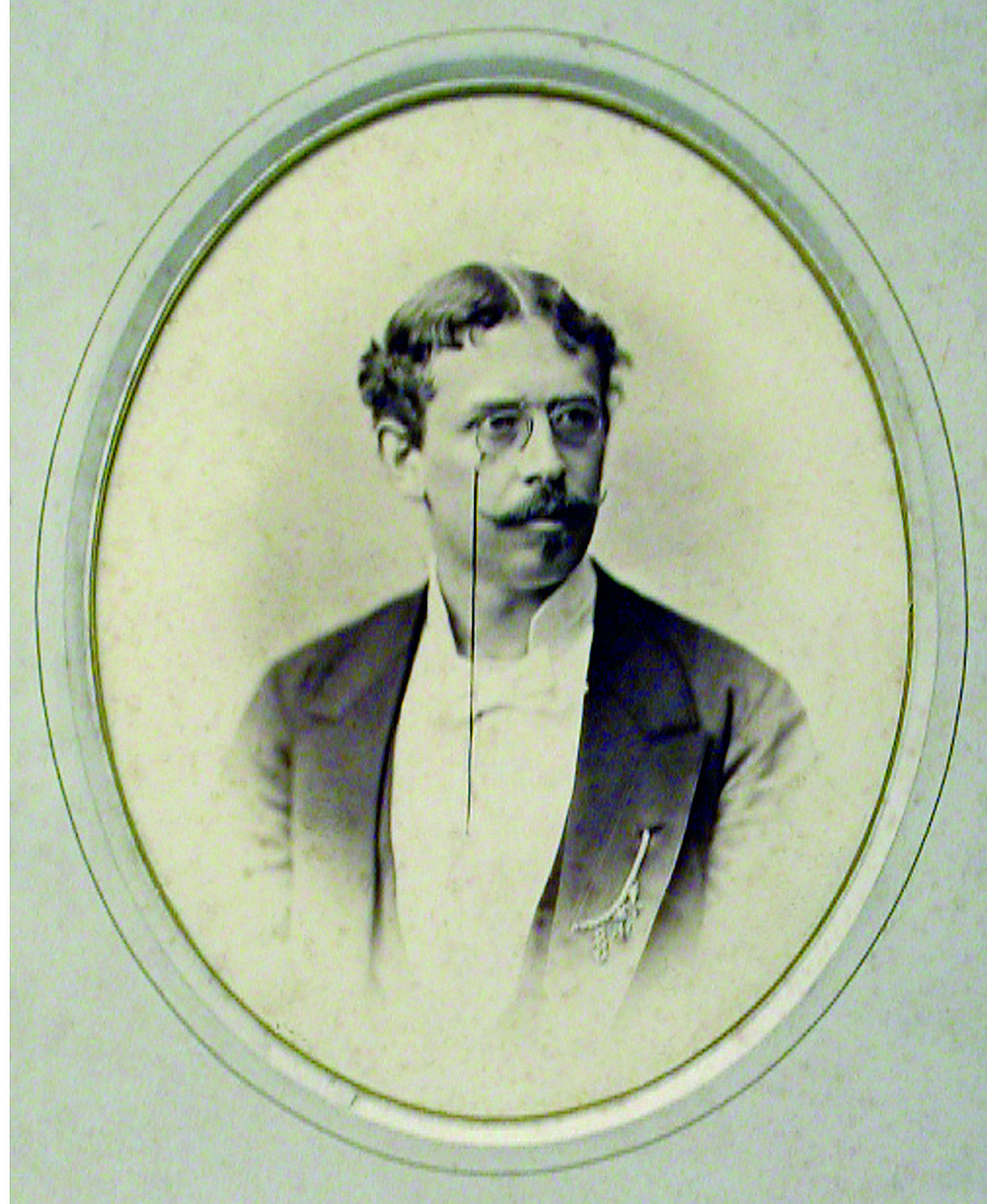Hugo Schuchardt
(1842 Gotha - 1929 Graz)
Hugo Schuchardt is one of the greats of his subject, linguistics, particularly in the field of Romance studies. He taught and researched at the University of Graz from 1876 until his death in 1929.

Schuchardt's pioneering research brought Graz philology a high international reputation. For example, he is considered a (co-)founder of Creolistics and Bascology. As a staunch opponent of the family tree theory, which viewed language development in analogy to Darwin's theory of evolution, he developed the idea of language mixing and the wave-like spread of languages. He was therefore above all a linguistic theorist who broke new ground beyond the boundaries of his actual subject, Romance studies, and developed decisive approaches for theory formation in general linguistics, some of which are only being systematically taken up again today. He is therefore regarded as the most influential Austrian linguist. Schuchardt was connected to the entire scientific community of his time through his correspondence. His correspondence, comprising almost 14,000 letters, and his publications have been made freely accessible in the digital"Hugo Schuchardt Archive" by the Graz Department of Linguistics under the direction of Bernhard Hurch. The foundation set up by Schuchardt in his will is administered by the Faculty of Humanities at the University of Graz. It promotes research and education in the scholar's field of work.
Scientific career
Born in Gotha (Thuringia) in 1842, Schuchardt completed his university studies in Jena and Bonn in 1864 with a dissertation on the vocalism of Vulgar Latin, which is still exemplary today. His subsequent writings have also gone down in the history of research. The Leipzig habilitation thesis Über einige Fälle bedingten Lautwandels im Churwälschen (1870) marked the beginning of the debate with the Young Grammarians, which would ultimately culminate in the pamphlet Über die Lautgesetze - Gegen die Junggrammatiker (1885). The Leipzig trial lecture in 1872 (published in 1900) marked the beginning of a new chapter in Romance linguistics in that it was the first time that the continuity hypothesis regarding the transitions of linguistic areas was presented in an exemplary and programmatic manner, thus scientifically substantiating the wave theory.
Schuchardt, previously a professor in Halle, accepted an appointment to the first chair of Romance studies at the University of Graz in 1876, which he held until his retirement in 1900. He was a member of countless academic societies and academies in Austria and abroad and continued to play an active role in international academic discourse. Until his death in 1927, the scholar lived in the "Villa Malwine", which he had built at Johann-Fux-Gasse 30 in Graz and whose grounds adjoin the Botanical Gardens and are partly used by the latter. Until a few years ago, this house housed the Department of Romance Studies, which emerged from the Schuchardt Chair and now has four professorships and numerous other academic positions.
Schuchardt founded several independent areas of research, such as Creole studies. He is considered a pioneer in other areas, such as language contact research, for which he was awarded the Prix Volney in 1884. He worked with varying degrees of intensity on phonology, accent systems, the verbal system, loanword relationships with Latin and the Romance languages, language contact and language affinities, Basque and the prehistory of Iberian, Celtic, Georgian, philological text editions and occasionally also literary issues.
The connection and separation of so-called historical and elementary language affinities, based on Humboldt's terminology, led Schuchardt into an interesting debate with the language typology that was gaining a foothold in academia at the time. Many of his writings were and are controversial (especially his numerous etymologies), but the breadth and depth as well as the passion and meticulousness with which he worked throughout his life and contributed original and relevant ideas to the most diverse areas of his discipline remains impressive. He was often a traditionalist and innovator in one person. Crossing borders, such as the contact between languages or the development of new languages, marked his path, also in the sense of scientific theory, towards neighboring disciplines, such as the interdisciplinary cultural research he practiced ante litteras, in transitional areas to ethnology (words and things), anthropology, cultural history and pedagogy and finally also to questions of language, ideology and politics. (A more detailed account of the life and work of the founder of the foundation can be found in the digital Hugo Schuchardt Archive).
Hugo Schuchardt bequeathed the holdings of his private library and his manuscript estate to Graz University Library. The former is integrated into the University Library's classification system via a special location. There, the bequest department manages the handwritten legacy, which mainly consists of letters. This was cataloged in the 1990s by Michaela Wolf (1993). Under the leadership of Bernhard Hurch, a project is underway at the Institute of Linguistics to publish all of Hugo Schuchardt's publications online on a dedicated Hugo Schuchardt homepage, as well as to gradually process the correspondence and other bequeathed materials of scientific and historical interest. The collection of relevant secondary literature on Schuchardt completes this offer.